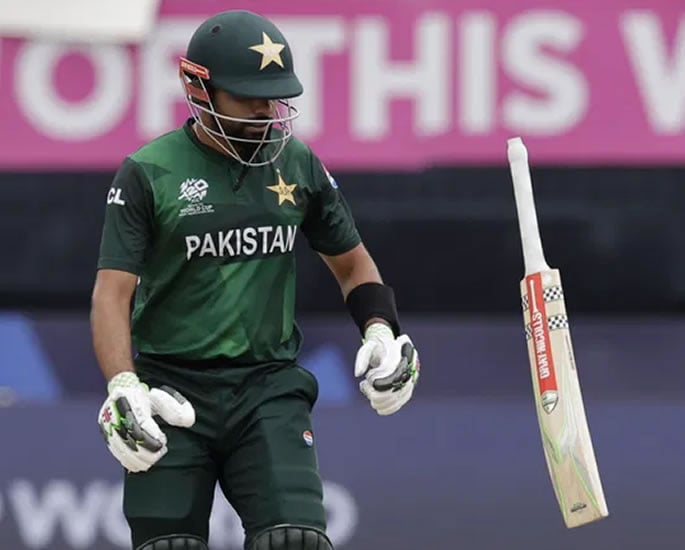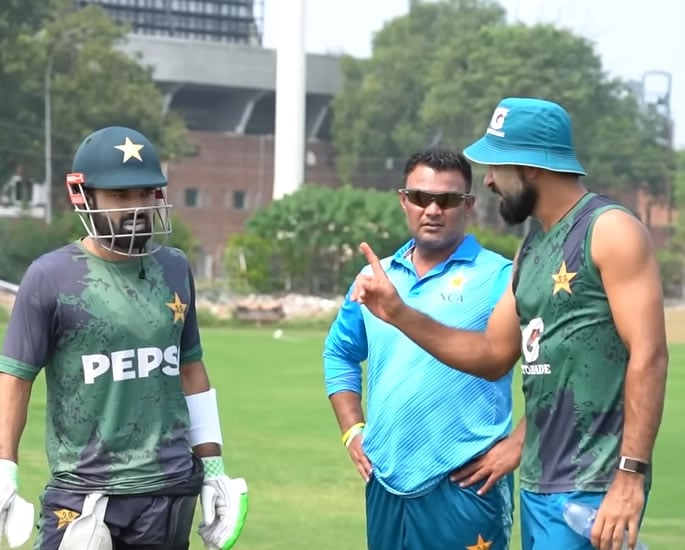The results mirror the turmoil.
The sense of drift surrounding Pakistan cricket feels inescapable.
The men’s team is struggling in every short format, with the once-feared unpredictability now replaced by chaos.
Frequent leadership changes, administrative turbulence and declining consistency have become familiar headlines.
Yet amid this turbulence, Test cricket seems to offer something rare for Pakistan: a plan, and perhaps, a path forward.
The contrast between the disarray of the white-ball teams and the relative clarity of the Test setup is striking.
As the World Test Championship (WTC) enters another cycle, Pakistan’s route to redemption may not lie in the glitz of franchise leagues or the volatility of T20s, but in the long game.
A Team in Turmoil

In Pakistan, the phrase “new captain” has lost all sense of novelty.
Shaheen Shah Afridi’s recent appointment as one-day skipper comes only a year after being dismissed as T20 captain following a single series.
It is a pattern emblematic of a system addicted to reinvention without stability.
The country’s cricket structure has been fragile for decades.
The 2010 spot-fixing scandal, which saw three players jailed, arrived during an era when Pakistan could not even host matches at home.
Somehow, in the middle of it all, they won a World Cup.
But today’s instability feels deeper, more systemic.
Since reaching the T20 World Cup final in 2022, Pakistan have cycled through five full-time captains, ten head coaches or team directors and four PCB chairmen.
The current board chief, Mohsin Naqvi, also serves as the country’s interior minister, a dual role that highlights how closely sport and politics remain intertwined, despite his insistence otherwise.
The results mirror the turmoil.
Pakistan finished last in the previous WTC cycle and has failed to reach the knockouts in the past three global white-ball tournaments.
Babar Azam’s elegant batting has not yielded an international century in over two years.
Even the women’s team, once showing promise, ended bottom at the 2025 World Cup, undone by poor planning and geopolitics.
India’s refusal to travel for the Champions Trophy, forcing Pakistan to relocate games to Dubai, further underscored their isolation.
The continued exclusion of Pakistani players from the IPL, and the PCB’s habit of withdrawing players from foreign leagues at short notice, has made their cricketers increasingly invisible in global franchise circuits.
As one player recruiter put it: “No one has got any confidence of taking a Pakistan player and them being able to turn up.”
Against that backdrop, the stability and structure of Test cricket stand out.
Why Test Cricket Still Matters

For all its flaws, the WTC has quietly become a lifeline for teams outside cricket’s dominant “Big Three” of India, England and Australia.
Its two-year cycle imposes a rhythm, something Pakistan’s administrators have struggled to create for themselves.
This time, the schedule works in their favour.
They avoid both India and Australia, with their most difficult overseas challenge being three Tests in England next summer. Winning even one of those would be a significant statement.
At home, they have begun shaping a method that suits local conditions.
After England’s aggressive “Bazball” dismantled them in Multan two years ago, Pakistan pivoted to spin-heavy pitches and found some success.
The strategy nearly worked again during their recent series against South Africa, where they dominated much of the first Test and should have clinched the second before Simon Harmer’s off-spin changed the match.
Amid the disappointments, individual stories stand out.
Noman Ali, once a club cricketer in Bradford, now has 50 wickets in his last six Tests at an average of 16.04.
His fellow left-arm spinner Asif Afridi made his debut only recently and delivered a six-wicket haul.
These late bloomers highlight Pakistan’s enduring talent depth, if only the system allows it to thrive.
And then there is Shaheen Afridi, whose reverse swing in the opening Test against South Africa reminded fans what Pakistan can still produce: world-class fast bowling that wins matches anywhere.
While the batting remains fragile, the presence of Babar Azam continues to offer a sense of possibility. His record in Tests, though inconsistent of late, retains the aura of unfinished brilliance.
Stability Hopes

Perhaps the most telling development is structural.
Test captain Shan Masood has been appointed as a consultant for international cricket and players’ affairs, a vague but potentially stabilising move.
It suggests an attempt to connect leadership roles on and off the field, something Pakistan cricket has long lacked.
The broader appeal of the Test setup lies in its insulation from short-term politics.
There are no last-minute withdrawals from leagues, no franchise conflicts, and no constant chopping of coaches. Instead, there is continuity, an opportunity to plan and build.
The WTC format offers a clear goal: reach the final in England.
For a team accustomed to turmoil, that kind of predictability could itself be transformative.
Winning away from home will not be easy, but with the right balance of pace, spin and leadership, Pakistan can remain competitive.
The red-ball format rewards patience, preparation and mental strength, qualities the side desperately needs to rediscover.
It would be premature to call Test cricket Pakistan’s saviour, but it remains the one format where structure and opportunity align.
The WTC gives Pakistan a tangible target and a steady schedule – elements missing from their short-form chaos.
Whether they can sustain progress will depend on consistency in leadership, investment in domestic red-ball cricket and the PCB’s ability to shield players from administrative distractions.
In the end, Test cricket offers Pakistan more than nostalgia. It provides a framework, one that could, if managed wisely, rebuild the credibility of a team that has too often been defined by instability.
The long game, it seems, may still hold the key to Pakistan’s revival.






























































